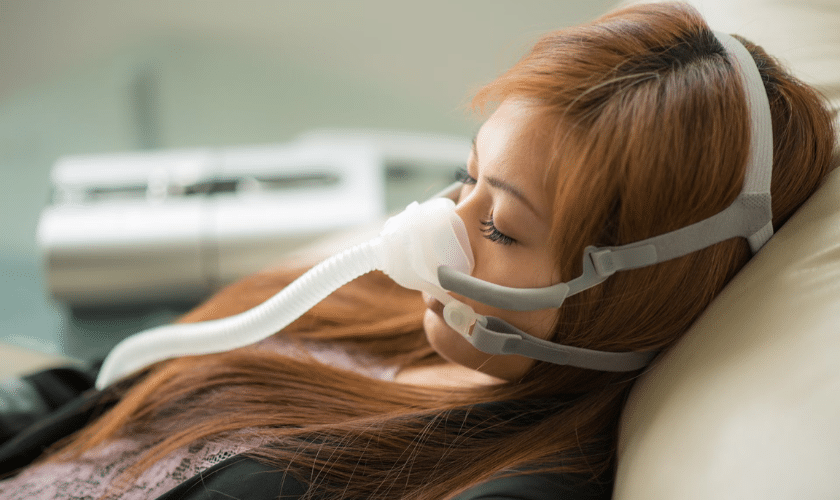The Hidden Dangers of Snoring – How It Can Affect Your Overall Health?

Snoring is a common issue that many people brush off as a harmless annoyance. For some, it’s nothing more than a mild inconvenience; for others, it disrupts peaceful sleep. But snoring isn’t always so simple. Behind those loud nighttime sounds could be hidden dangers that surprisingly affect your health.
While occasional snoring might not pose a threat, frequent and loud snoring can signal serious health concerns. It can disrupt sleep and strain relationships, but the risks go deeper. Chronic snoring can indicate underlying conditions like sleep apnea, which may lead to severe health problems.
This blog will explore the causes of snoring, its immediate and long-term effects, and how to prevent it from harming your health.
What Causes Snoring?
Snoring occurs when air struggles to flow smoothly through the throat and nasal passages. Various physiological factors contribute to this disruption.
- Blocked Airways: Allergies, colds, or sinus infections can cause nasal congestion. This limits airflow and triggers snoring.
- Relaxation of Throat Muscles: During sleep, the muscles in your throat relax. Sometimes, they collapse partially, narrowing the airway and causing vibrations that lead to snoring.
- Obesity and Sleep Position: Excess weight can thicken tissues around the neck, increasing the risk of airway blockages. Sleeping on your back also makes snoring more likely as gravity pulls tissues down, obstructing the airway.
- Nasal Issues: A deviated septum or chronic nasal congestion can worsen airflow, making snoring frequent.
- Lifestyle and Genetics: Alcohol consumption, smoking, and certain genetic traits can increase the risk of snoring.
Understanding these causes helps you identify the root of the problem, which is vital for effective solutions.
The Immediate Impacts of Snoring
Snoring affects not only the person snoring but also those around them. The following consequences highlight why snoring is more than a nuisance.
- Disrupted Sleep: Snorers often experience interrupted sleep due to reduced airflow. Their partners may also suffer from sleepless nights, leading to frustration and exhaustion.
- Daytime Fatigue and Mood Swings: Poor-quality sleep leads to daytime fatigue. This can result in irritability, lack of focus, and mood swings, which can affect productivity and overall well-being.
- Social and Relationship Strain: Loud snoring can strain relationships, especially when one partner feels sleep-deprived. This often creates tension, reducing emotional connection and harmony at home.
Ignoring these immediate effects can snowball into long-term health problems, making it crucial to address snoring early.
The Hidden Dangers of Snoring
- Chronic Health Risks
- Sleep Apnea: Persistent snoring is a common symptom of sleep apnea, where breathing repeatedly stops during sleep. Warning signs include choking or gasping sounds and extreme daytime fatigue.
- Cardiovascular Problems: Untreated snoring, especially linked to sleep apnea, increases the risk of high blood pressure, heart disease, and stroke. The strain on your heart grows when oxygen levels drop during sleep.
- Mental Health Effects
- Sleep Deprivation: Snoring disrupts the natural sleep cycle, leading to poor-quality rest. This often results in anxiety, depression, and reduced cognitive function. Over time, memory issues and difficulty concentrating may appear.
- Metabolic and Immune System Challenges
- Diabetes Risk: Chronic snoring can influence blood sugar levels, making diabetes more likely.
- Weakened Immune System: Poor sleep weakens your body’s ability to fight off infections. Frequent illnesses may become a reality if snoring continues unaddressed.
By understanding these hidden dangers of snoring, you can take proactive steps to safeguard your health.
How Can Snoring Be Identified If It Is a Serious Issue?
Not all snoring is harmless. Pay attention to these warning signs to determine if medical attention is needed:
- Loud, persistent snoring that disturbs sleep.
- Gasping, choking, or pauses in breathing during sleep.
- Chronic fatigue, even after a full night’s rest.
- Morning headaches or a dry throat upon waking.
Consulting a doctor and undergoing a sleep study can provide valuable insights. These evaluations measure breathing patterns and identify underlying issues like sleep apnea. Early diagnosis is key to avoiding severe health consequences.
Prevention and Treatment Options
- Lifestyle Changes
- Maintain a healthy weight to reduce neck tissue bulk.
- Quit smoking and avoid alcohol, especially before bedtime.
- Sleep on your side instead of your back.
- Medical Interventions
- CPAP Machines: These devices keep airways open by delivering a steady flow of air.
- Oral Appliances: Custom-fit devices help adjust jaw positioning to reduce snoring.
- Surgical Procedures: In severe cases, surgery may correct structural issues like a deviated septum.
- Home Remedies
- Use nasal strips to improve airflow.
- Keep your bedroom air moist with a humidifier.
- Address allergies to prevent nasal congestion.
Whether using home remedies or advanced devices, taking action can significantly improve sleep quality.
When to Seek Professional Help?
If lifestyle changes and home remedies don’t work, consult a sleep specialist. Sleep dentistry Hugo offers innovative treatments for snoring and sleep apnea. Specialists can provide custom solutions like oral appliances tailored to your needs.
Advanced technologies, such as CPAP machines and minimally invasive surgeries, can deliver lasting relief. Seeking professional help ensures the issue doesn’t become more serious health risks.
Snoring is more than a bedtime annoyance; it can signal significant health risks. From cardiovascular issues to mental health challenges, the dangers of snoring are real. Addressing the hidden dangers of snoring early can protect your health and improve relationships.
Don’t ignore the signs—seek medical advice if needed. Small steps, like lifestyle changes and professional treatment, can lead to peaceful, healthy nights. Prioritize your well-being and take control of your snoring today!



